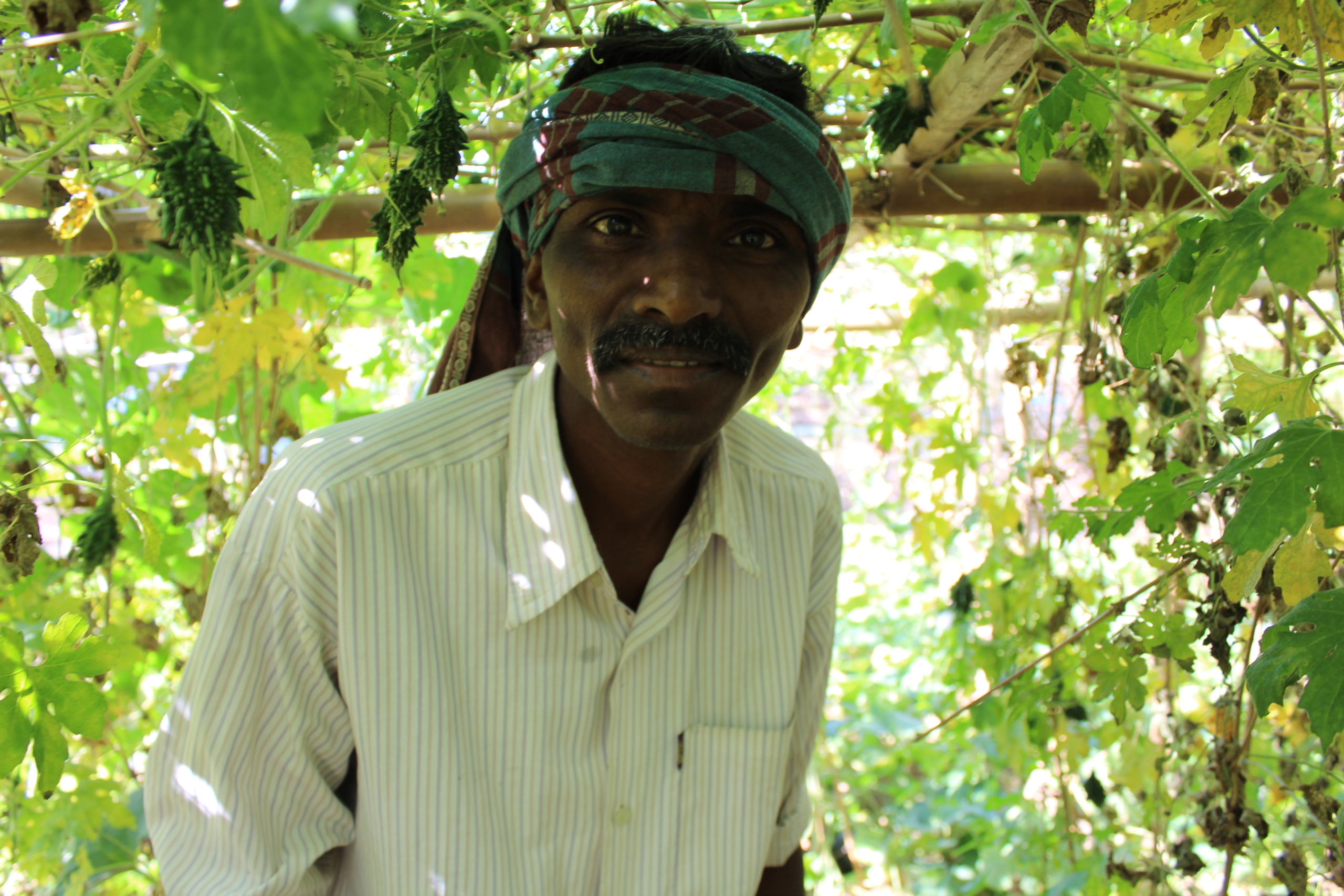Ganeshwar Madi is a native tribal smallholder farmer from Odisha who is dependent on rainfed agriculture and limited natural resources. The extreme weather conditions in this region of Malkangiri district with tropical with hot and dry summers and temperatures soring up to 45 to 48 degrees Celsius, poses a range of challenges for Ganeshwar. Rainfall over the years has been scarce.
Limited natural resources in the tribal belt
Ganeshwar was also among the high section of smallholding farmers who also practiced input driven agro-chemical agriculture that very well resulted in biodiversity loss, overexploitation of natural resources and posing a grave threat to public health through elevated pesticide residues.
Government convergence of rural farmer schemes were considered absolutely ‘niche’ for the tribal-dominated hilly district for many decades now. Also during a fair period, the district had been closed to government schemes due to its extreme left-wing Maoist violence, often resulting in curfews and lockdowns alongside firing between the fringe groups and paramilitary forces.
Many farmers who belonged to this tribal region were trapped among the violence and were completely isolated from the welfare schemes. Till now, many farmers are not aware of many readily available convergence schemes they can avail to claim subsidies and farming equipment.
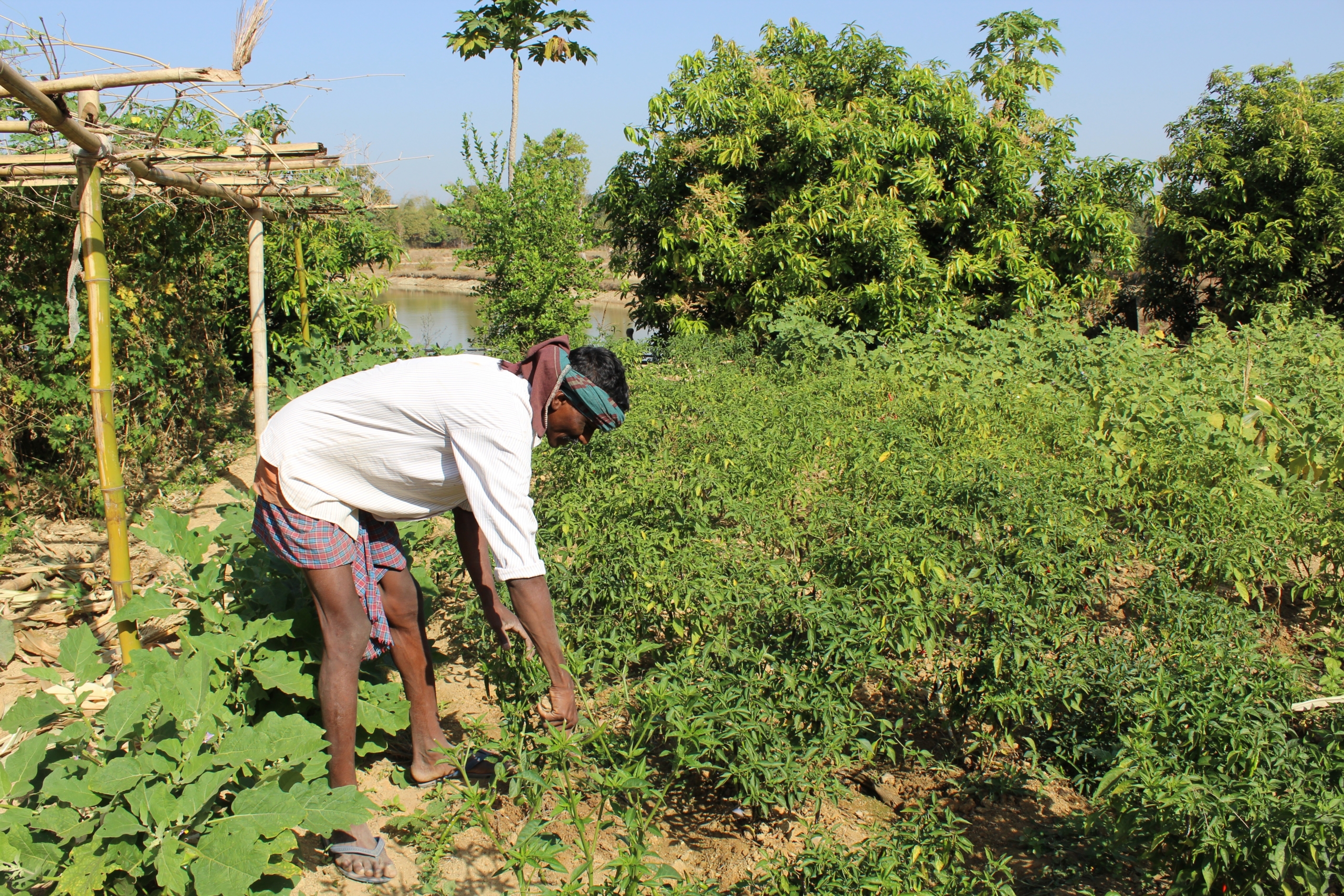
“I was looking for an alternative where I can progress with better management of resources specially rainwater in this dry region, and also connecting with government schemes to improve my farm condition and expand farm-related allied income opportunities. For the income that we generated, it was not enough to rely only on farming for sustenance. The other income option being migration and working as construction labourer,” says Ganeshwar.
SIFS presents an alternate sustainable solution
In 2019, when Agriculture Extension Worker (of the project) Sanjukta visited Madi’s field during a baseline survey, she found Ganeshwaras an enthusiast who wanted to find a better alternative. With him was Ramesh Madiwho also passionately came forward to join the initiative and started learning about sustainable integrated farming systems.
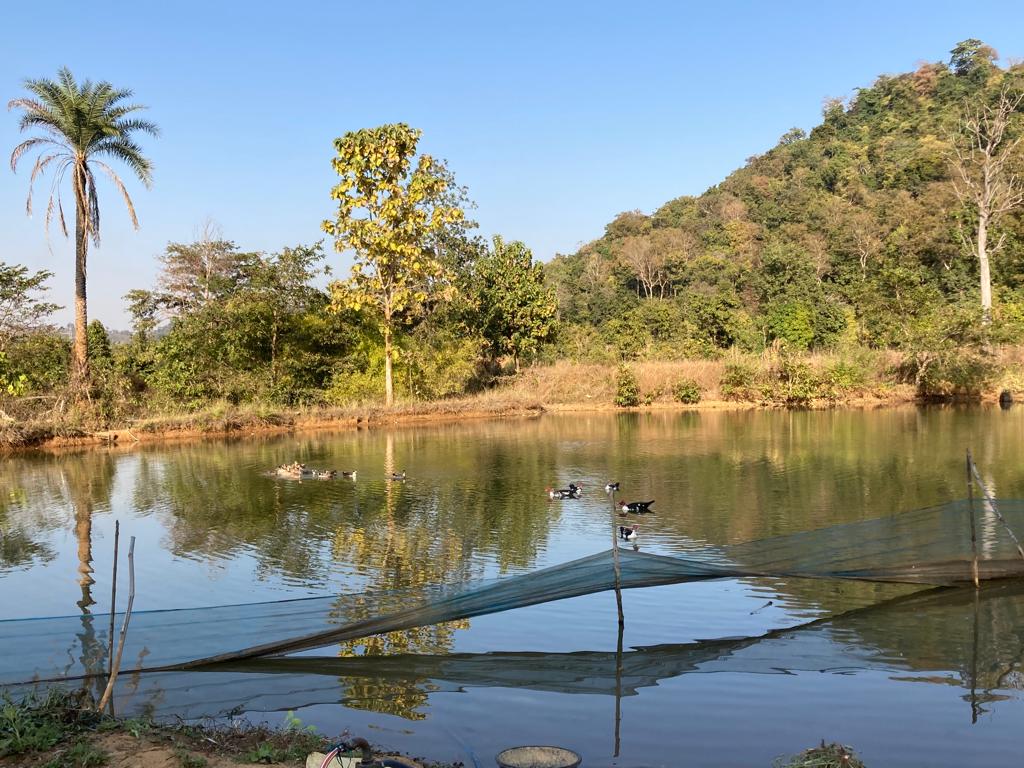
SIFS or Sustainable Integrated Farming Systems took the participating farmers to their traditional knowledge and roots. Trainings were given soil management and improvement through reviving the practice of organic compost. They started replacing chemical fertilizers. Dietary diversification in terms of growing vegetables and fruits were also promoted. Madi started dedicating more space in his farm for gourds, tomato, cauliflower, spinach for family’s consumption. Paddy is the main crop sown in Malkangiri, a high-water intensive crop that can only grow in monsoon season from mid-June to September. For the rest of the period, most farmers take on a journey to nearby town and cities for construction work, leaving behind their family and farm.
“We identified the most marginalized farmers and organized them in collectives which was a very new concept in the region. They had never heard of this before. Many were scared of the change; for reviving their own traditional farming practices which was lost in the high input driven market. We demonstrated integrated farming tools through model farms,” says Sanjukta, the 21-year-old extension worker.
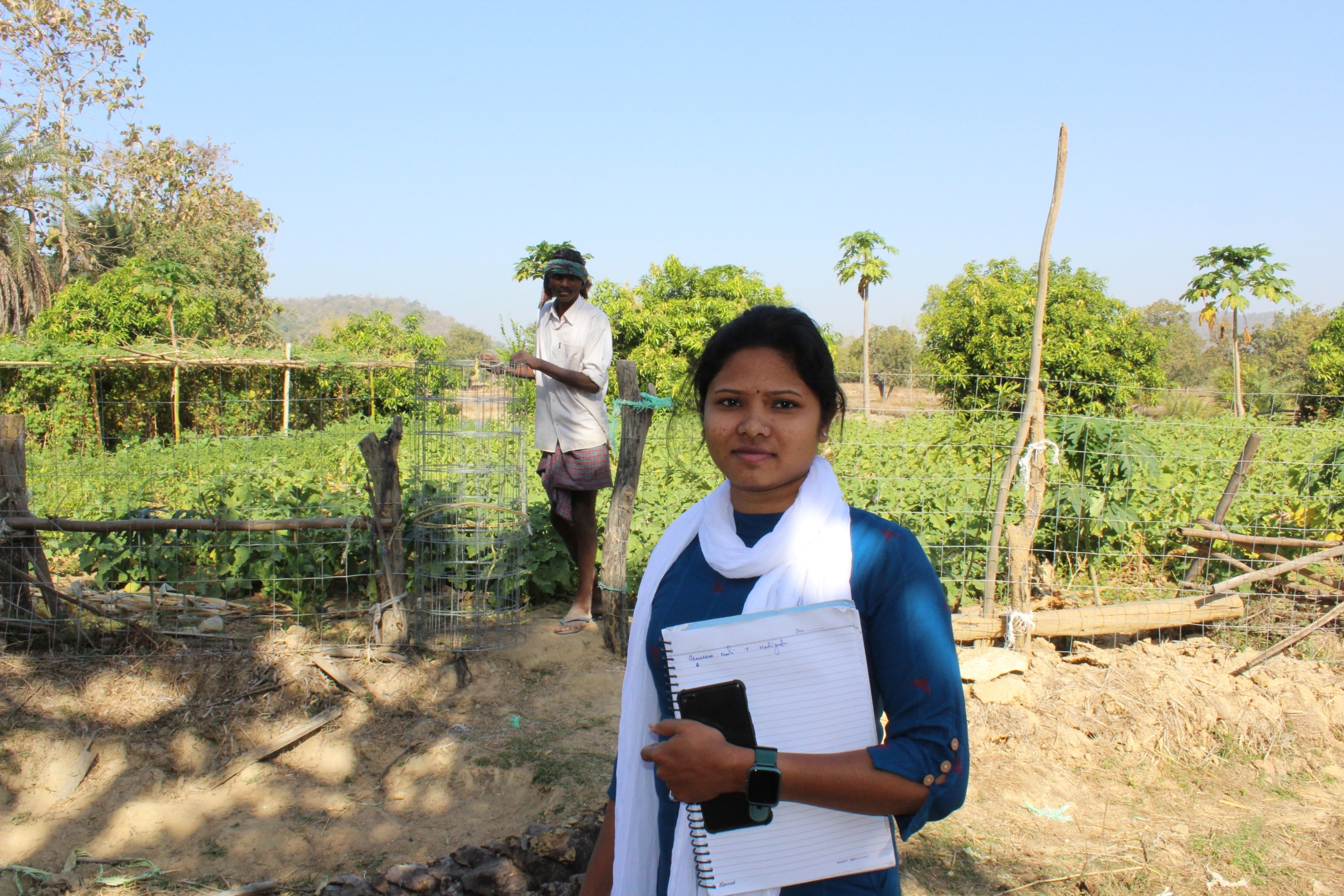
In the extremely drought-prone areas, water management is a major challenge considering the hilly terrain and the farmers dependency on rains. Soil conservation and prevention of desertification was the primary challenge in the region since water availability is extremely low and. “We encouraged agro-forestry where multi-variety crops are planted alongside trees to give shade and mulch to the soil preventing moisture evaporation. By mixing trees, shrubs and seasonal crops the damage caused due to drought and insects is prevented.”
Income expands with focus on nutrition and availing local schemes
Ganeshwar and Ramesh Madi’ssoil health has drastically improved over one year. The soil is more porous in nature that indicates preservation of nutrients and moisture. This type of quality soil also requires less watering over time.
“There are lesser soil cracks in my field. It is soft. And mulching helps the soil retain its moisture even in 50 degrees Celsius. It would also require water then, but quantity would be minimal. These were the farming practices performed by our previous generation which has been forgotten overtime,” says Ganeshwar.
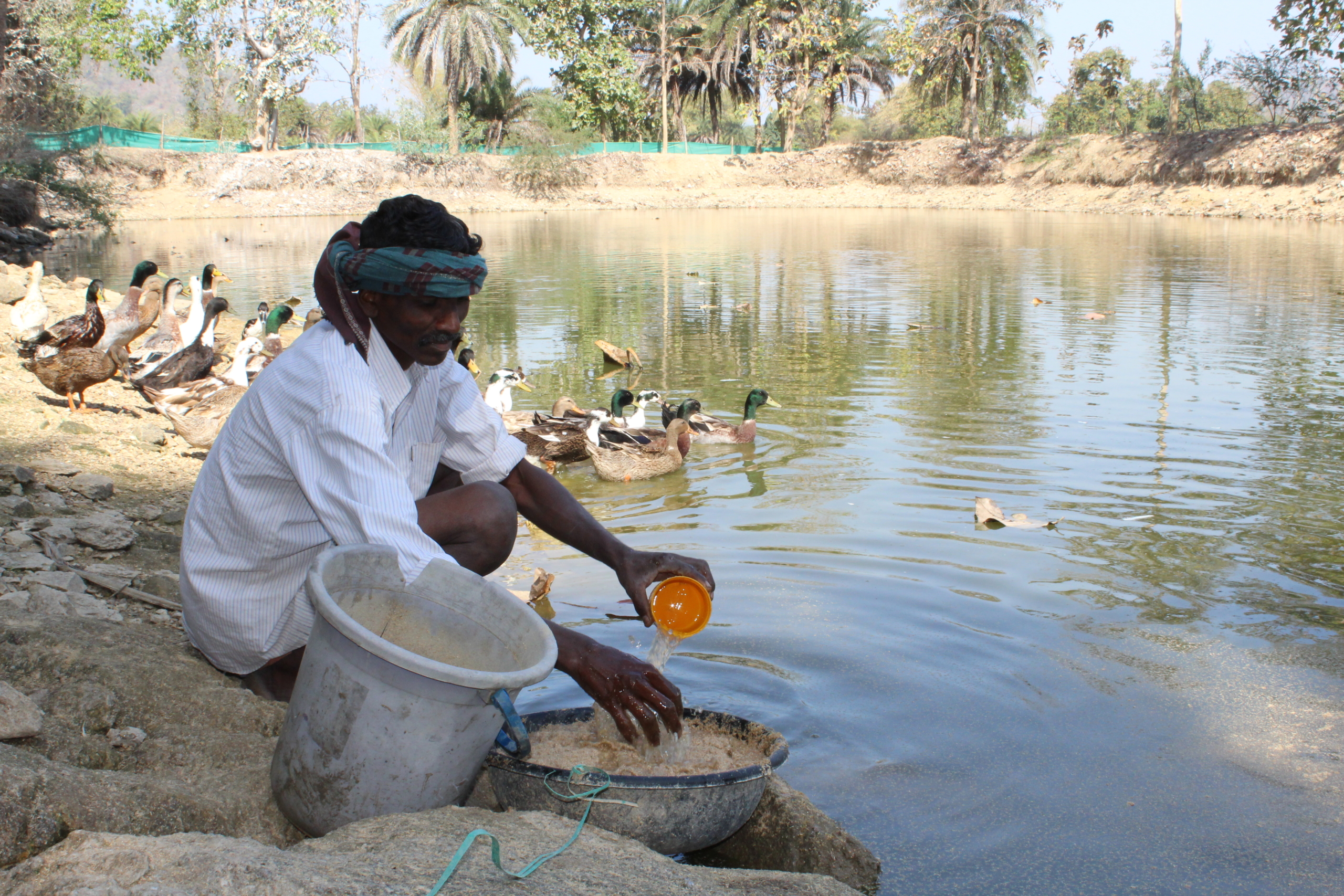
It is quite inspiring to see farmers like Ganeshwar and Rameshtorespond in technical language.
The project also opened a stream for convergence of government schemes for the farmers. Ganeshwarcould avail a funding for construction of duck shelter for his 40 ducks and ducklings. “Domestic ducks are extremely vulnerable to predators—especially at night—and need a safe place to sleep, lay their eggs and maybe even raise ducklings,” he says.
The project surely provides a promising alternative that is ecologically, economically and socially viable, while being rooted in rich traditional knowledge.
